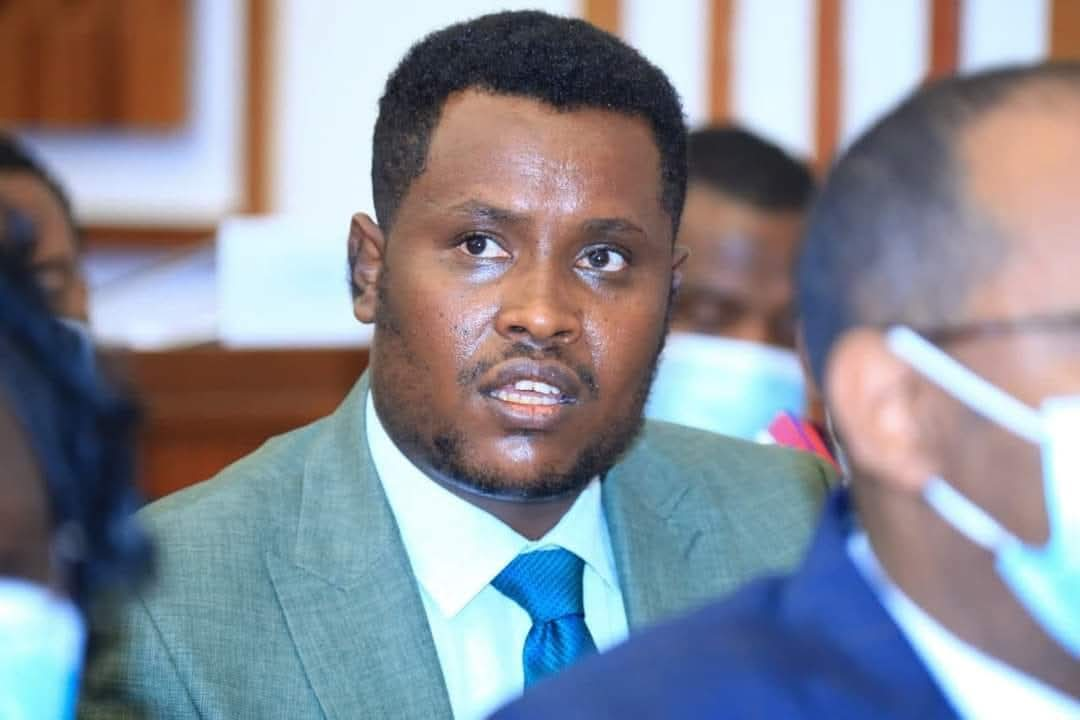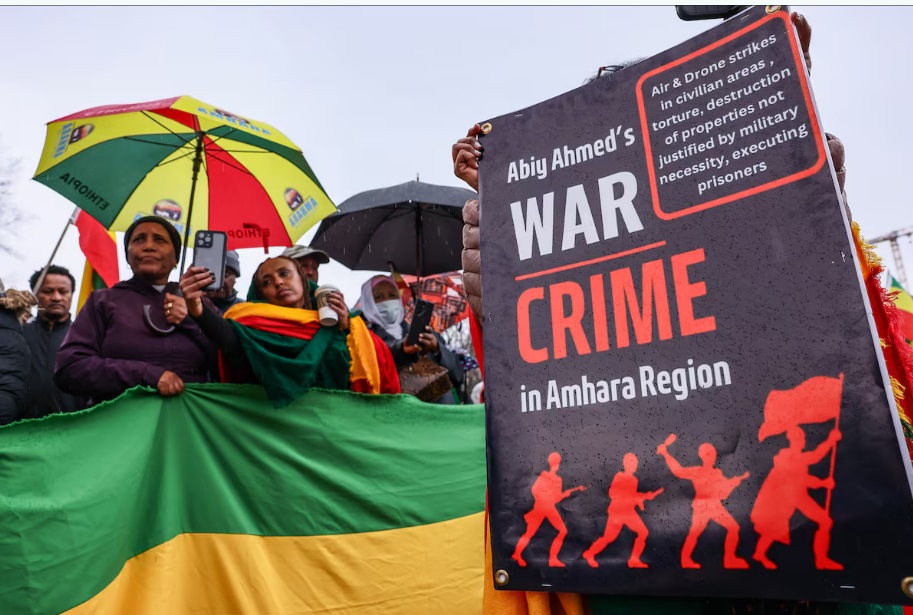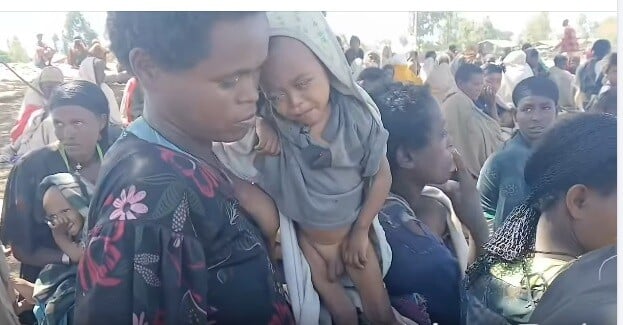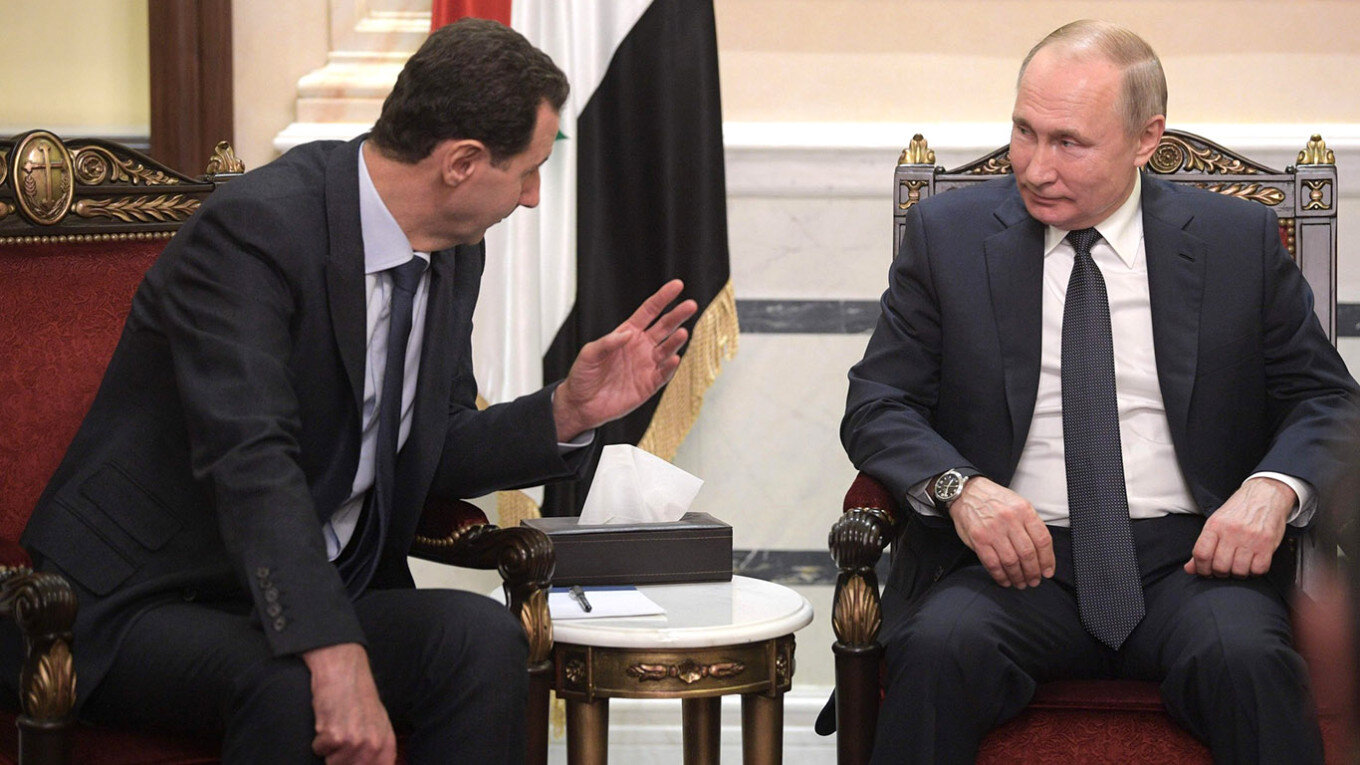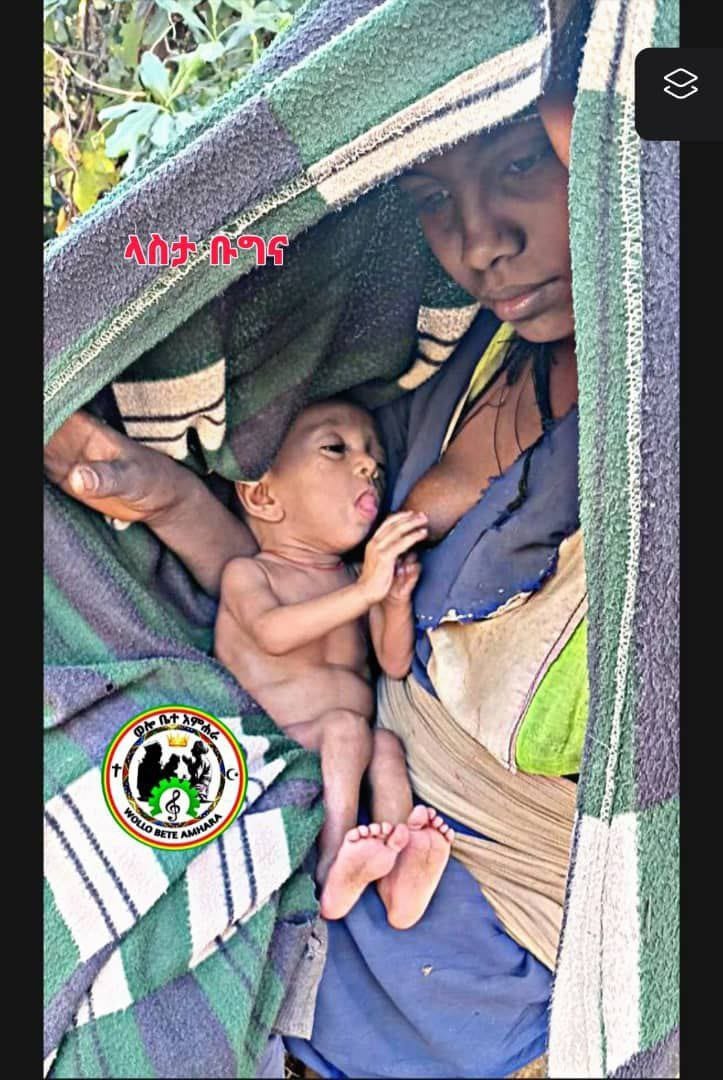By Emily Wax
April 1, 2012 (Washington Post) – On a windy Saturday afternoon at a small Petworth cafe, Taha Tuko orders a round of celebratory macchiatos for three of his countrymen and tells them their 38-year armed struggle for secession from Ethiopia is over — fighters back in Africa have laid down their arms.
The dream of an independent Oromia long cherished by Tuko and other Oromo Ethiopians might never be realized. Their revolution is being repurposed with a new goal: uniting with other Ethiopian opposition parties in the Washington region against the regime of Prime Minister Meles Zenawi, which they all accuse of being autocratic and corrupt.
“The violence is over, and this is good news!” insists Tuko, the Washington region leader of the now retooled Oromo Liberation Front (OLF), one of the factions that fought for an independent Oromia. “But our mission is no longer for independence. We’ll be one with the Ethiopian community now. Both back home and here in Washington.”
Washington is home to an estimated 100,000 Ethiopian immigrants — the largest concentration in the United States — including ethnic Oromos such as Tuko, from central and southern Ethiopia, as well as a half-dozen other ethnic groups, such as the Amharas from the eastern and central highlands and the Tigrayans from the northern highlands.
But what happens to diasporas of this kind when a revolution or a political movement dies? Does everyone just go out for coffee, become friends, start working together? Sometimes. Older political factions from Washington’s Salvadoran diaspora, for example, still come together every year to honor the end of the Central American country’s civil war 20 years ago because it was so powerful in uniting the community here.
* * *
The Oromo countrymen, a cook, a cab driver and a teacher, pull off chunks of injera, Ethiopia’s crepelike flatbread, and use it to sop up a traditional lunch of goat and vegetables, washing it down with the customary glass of milk. The Georgia Avenue cafe is called A Land of Medicine, after an Oromo city. Grainy Oromo music videos play on a beat-up television — flashing images of Oromia’s lush barley- and coffee-growing regions — as each of Tuko’s guests share harrowing stories about friends and relatives hauled off to jail in the middle of dinner or found dead after being assaulted. Oromos, 50 percent of whom are Muslim, are Ethiopia’s largest ethnic group, and the men and women talk about religious persecution and attempts to limit their political power in the majority Christian Ethiopian Orthodox country.
The OLF, one of the world’s long-running insurgent groups, was so active in Washington that it had offices in a Takoma Park bungalow, a U Street rowhouse and a commercial building in Petworth that now has a “For Rent” sign out front. The group organized Howard University political rallies, functions at Oromo churches and mosques and high-level meetings with Congress — even a Miss Oromo-North America beauty pageant.
Those events will continue, Tuko promises the crowd, just with a different spin.
“We still want to keep our identity as Oromos. But it’s also about healing and working together now,” he said. Tuko has been spreading a similiar message in Oromo diaspora communities across the United States, holding lunches like this one in places such as Dallas and Houston as part of the OLF’s so-called “Oromo Unity Train.”
Or in the joking words of radio host and political satirist Abebe Belew:
“You’ve heard of the Arab Spring, as this awakening to revolution? Well, this is our Ethiopian Winter because of the dropping of secession. But soon it’s going to be much bigger than the Arab Spring, because our biggest breakaway group wants unity and they will join forces against the current government,” said Belew, who is known as a sort of Ethiopian Jon Stewart.
“It will change Ethiopia and it will change Washington.”
* * *
Tuko and other Oromos would correct you if you called them Ethiopian. There are youth groups for Oromo college students, Oromo cultural festivals and Oromo Singles, a dating Web site.
“On U Street, other Ethiopians would call us by an ethnic slur outlawed in Ethiopia and used to mean, you are ‘an ignorant peasant,’ ” said Misra Ibrahim, 37, a cook who was eating lunch at the cafe when Tuko and other Oromos began to discuss the movement’s new focus. Her brother was killed in the fighting in 1995.
“They don’t know how much that hurt, and worse was the fact that the word was being used in Washington,” said Etena Shuremu, a 37-year-old Oromo teacher, who said he was relieved the separatist fight was over. “I’m really proud I’m an Oromo. But I think it’s time to work together, get some attention, run some candidates against the current ruler. Then we can see.”
This could mean big changes and small, both in politics and daily life. Oromos could unite with other Ethiopian opposition parties, which are increasingly critical of the regime. It could also affect Washington’s taxi companies: the Pleasant Cab company is largely Oromo, while Welcome Cabs’ drivers are mostly Tigrayans, the ethnic group to which the prime minister belongs.
“It will take time to build trust, but it’s going to happen because a secessionist movement feels so old-fashioned right now,” said Belew, who is an Amhara and works as a cabdriver to subsidize the show he hosts on Centreville-based WTNT (730 AM). “Plus, the mood in the diaspora in Washington is that everyone wants to try to overthrow the current government by themselves,” he said with a wry chuckle. “Now they can all work together, including some Tigrayans who also oppose the prime minister and his policies.”
Wahid Belay, a press officer with the Ethiopian Embassy in Washington, said the OLF was labeled a terrorist group by his government because of its use of violence. “If they are committed to being a part of the system, then it’s encouraging,” he said, adding that any criticism of the administration as undemocratic was unfounded.
There are small Oromo separatist factions remaining; Africa analysts say they are highly disorganized because of in-fighting, but they could resurrect a resistance movement in the future.
* * *
History has not been kind to the Oromo people, whose complaints of subjugation date back to the last quarter of the 19th century, when they were colonized by the armies of Ethiopian emperor Menelik II, said John Harbeson, an African studies lecturer at Johns Hopkins University’s School of Advanced International Studies.
Despite being the largest ethnic group in Ethiopia, they have felt culturally and politically oppressed ever since, and their lands have been occupied by politically dominant northern groups. The present ruling party coalition is led by Tigrayans, who make up only about 6.1 percent of the population, Harbeson said.
But a recent sweep of arrests by the government has weakened the Oromo rebel movement, Harbeson said. Worried about that the Arab Spring uprising in nearby northern Africa would become an Ethiopian Spring, the government cracked down by sending tanks out to the center of OLF opposition, and preemptively arresting as many as 200 Oromo leaders, he said. (Human Rights Watch reported on the government’s arrests of Oromo leaders and says the Ethiopian government labels the movement a terrorist one as an excuse to silence all opposition.) The government disputes the arrests.
“At this point, it doesn’t surprise me at all that Oromos may see an opportunity to get to where they want to go by means other than low-level violence,” said Harbeson, who noticed the trend when the Oromos joined with other opposition parties during the 2010 election to collaborate against the unpopular ruling government. “It will be interesting to see if this collaboration will last.”
* * *
Washington is home to Little Addis, the lively strip around Ninth and U streets NW that’s lined with Ethiopian restaurants as well as African nightclubs and clothing stores. But what’s lesser known is Little Oromia, a far smaller stretch of Georgia Avenue in upper Northwest, near Silver Spring, where many of the estimated 10,000 Oromo Ethiopians who live throughout the region come to pray in a busy mosque and an Oromo church. They also talk politics at several small Oromo coffee shops, which sell Oromo-language music videos and books along with coffee beans from the region.
Nearby, the Oromo Community Organization runs a neighborhood center that hosts Oromo history workshops, computer training for recent refugees, dances and other events, said Tsegaye Gelgelu, director of the center, who added that whether or not there is a movement for an independent Oromia, “No one wants their identity eroded. There will always be a Little Oromia.”
Tuko wants that, too.
He spends his weekdays working in a legal office assisting lawyers. But he spends his weekends as a newly branded Oromo political organizer, working to get the word out about the OLF’s new agenda. He recently spoke at a symposium on the subject in the ballroom of the Sheraton Hotel in Arlington that was attended by more than 500 people, including Washington representatives of other opposition parties.
Then as now, his audience was not quite convinced that the shift in agenda is cause for celebration. Abdulla Hussein, one of Tuko’s lunch companions, was jailed for six months for his separatist political views in 1988, escaped to Kenya and made his way to Washington three years ago. “My 8-year-old daughter overheard me talking and recently asked me, ‘Daddy, is there no country known as Oromia anymore?’ ” Hussein, 40, said with a sigh. “We will have to explain there’s no such place. We are Oromo Ethiopians now.”
Hussein heard about the end of the secessionist dream on Facebook, so he appreciates that Tuko is willing to spend face time explaining the change.
Tuko lost two brothers in the conflict and used to protest for an Oromo homeland in front of the White House every few months, wearing an Oromia T-shirt.
To ease his companions’ disappointment, Tuko brings out some keepsakes of the movement, which he said helped build a strong Oromo American identity and preserve the Oromo language for future generations. He shows Hussein and Ibrahim booklets from a recent Oromo summer festival in Washington along with an Oromo history textbook. It’s called “Tears of Effort,” and it recounts the melancholy story of the Oromos’ resistance to cultural obliteration and fight for a homeland of their own.
“Maybe it needs a final chapter and a happy ending,” Tuko says. “That’s what we hope for.”
–Source:- Washington Post


